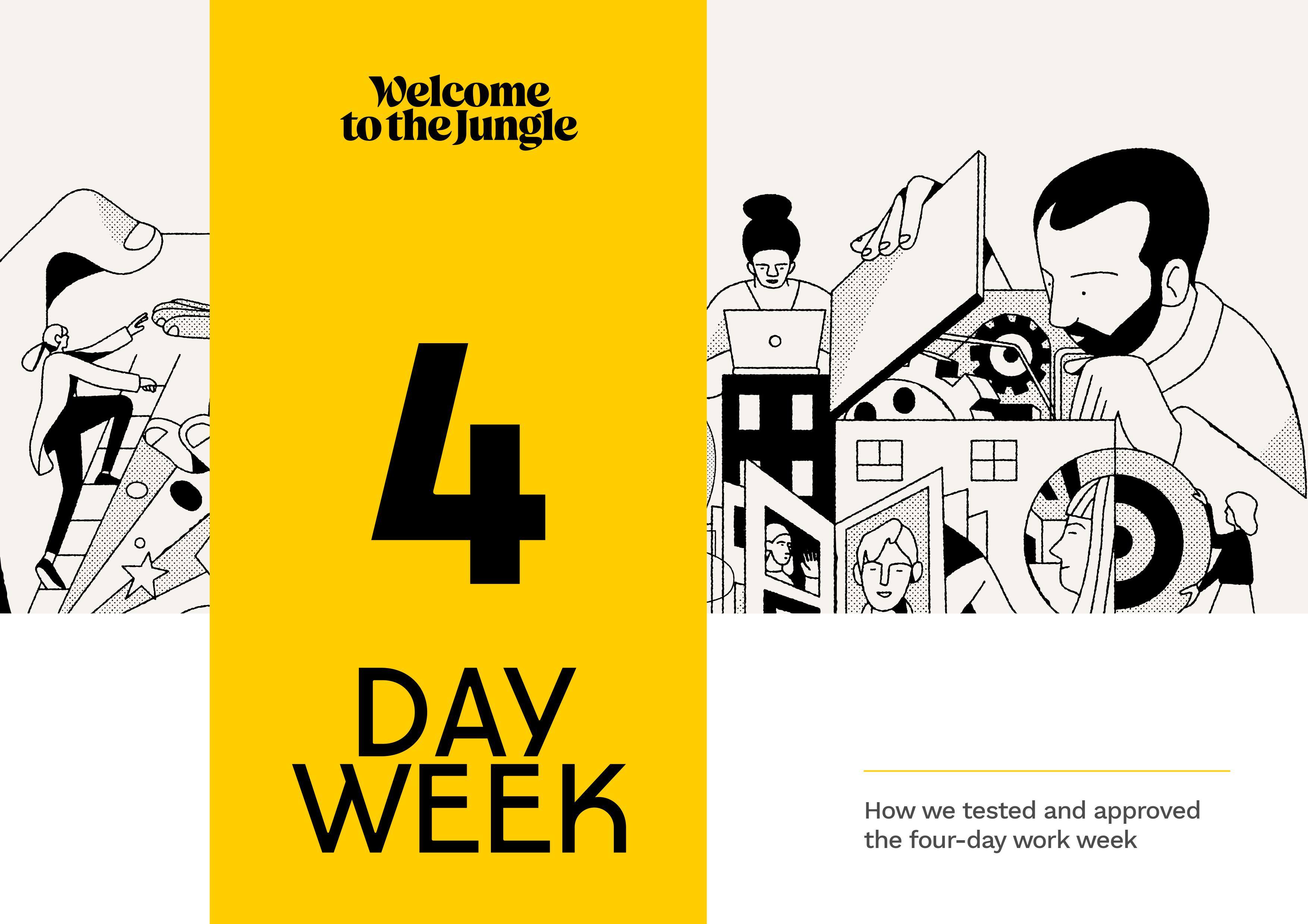If you have ever wondered what would happen to a company if it decided to work only four days a week, instead of five, this document will give you answers.
Welcome to the Jungle tried out the four-day working week in 2019 for five months, between June and October. After the trial ended, the company decided to implement the four-day week, without impacting salaries.
The questions this experiment raised for us were numerous:
- How did the company adapt to the new schedule?
- How did the change impact the company’s financial performance
- How did it impact the company’s non-financial assets (including brand image, employer brand, etc.)?
- How did the four-day week affect employees’ work-life balance?
- How did it influence the way people work together and interact?
- What effect did it have on the work’s quality and creativity?
This document aims to provide insights on our experiment. It includes an analysis of its impact on performance, people, work practices, and processes, as well as an explanation of our key takeaways as a company.

